
Computers were invented to follow instructions – to do calculations quicker than humans can. However, their inventors knew this was just the beginning. More than 70 years ago, pioneering computer scientist Alan Turing predicted that computers would one day be able to learn from experience and solve problems that they had not been pre-programmed for. In other words, they would be able to think.
That day is now! Artificial intelligence (AI) has quietly become part of everyday life – from smart speakers that respond to your voice, to software that recommends what to watch next. In April, the UK became the first country in Europe to allow AI-assisted cars to drive on motorways. In hospitals, AI has taken over routine tasks like examining X-rays and brain scans, leaving doctors more time to spend with their patients. It’s also AI that allows social media filters to swap your face with a cat or a potato (although this probably wasn’t what Turing had in mind).
SQUARE EYES Al software sorts through more than 80 years' worth of new content uploaded to YouTube each day to find videos you'll like.
Diese Geschichte stammt aus der Issue 63-Ausgabe von The Week Junior Science+Nature UK.
Starten Sie Ihre 7-tägige kostenlose Testversion von Magzter GOLD, um auf Tausende kuratierte Premium-Storys sowie über 8.000 Zeitschriften und Zeitungen zuzugreifen.
Bereits Abonnent ? Anmelden
Diese Geschichte stammt aus der Issue 63-Ausgabe von The Week Junior Science+Nature UK.
Starten Sie Ihre 7-tägige kostenlose Testversion von Magzter GOLD, um auf Tausende kuratierte Premium-Storys sowie über 8.000 Zeitschriften und Zeitungen zuzugreifen.
Bereits Abonnent? Anmelden
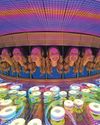
Camera Obscura
Imagine stepping inside a dark room, where the only source of light comes through one small hole in the wall.

MANCHESTER SCIENCE FESTIVAL
From 18-27 October, shoppers at the Arndale shopping centre in Manchester, England, will face a giant spider.

Should musicians stop touring?
Multiple concerts travelling around the world have a big impact on the environment.
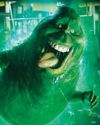
Are ghosts real?
Plenty of people believe in ghosts, but it's hard to find proof.

SMASH STEREOTYPES
In an extract from his prize-winning book, scientist and writer Adam Rutherford shows you how to use the power of science to fight racism. This chapter, titled Myth-Busting, is all about sport.
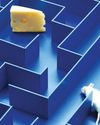
Animal awareness
What would it feel like to be another animal?
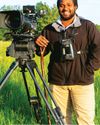
Hamza Yassin
Go behind the camera with a wildlife filmmaker.
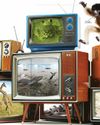
WILDLIFE WATCH
Ben Hoare goes on a safari from his sofa to discover how nature documentaries are made.
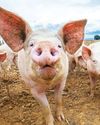
Big bum breakthrough
A team of researchers who found out that mammals can breathe through their bottoms have won a prize at the lg Nobel awards.
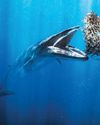
A jaw-dropping undersea snap
A photograph of a Bryde's whale feeding on a heart-shaped \"bait ball\" of sardines has won the Ocean Photographer of the Year contest.